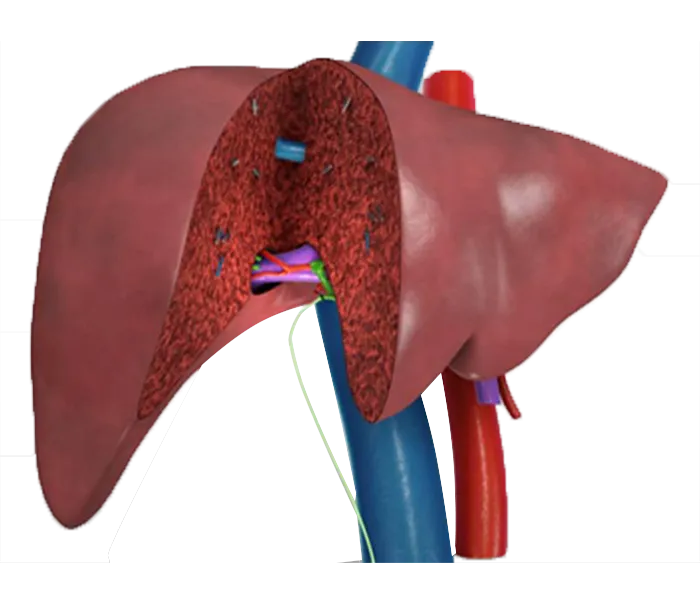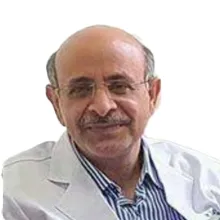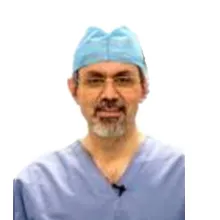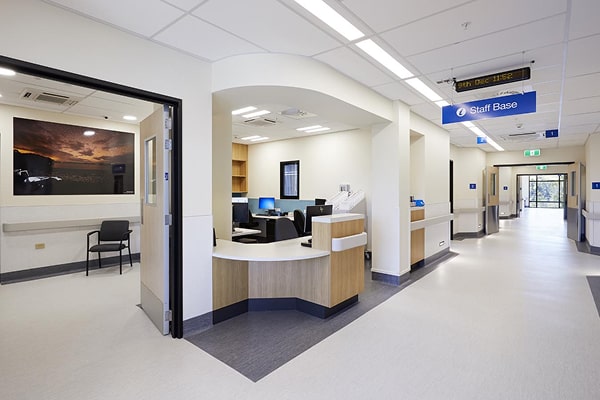Liver transplant surgery is one of the most complex and life-saving treatments available for patients with advanced liver disease. In this procedure, the damaged liver is replaced with a healthy one from a donor. Given the liver’s vital role in sustaining life, this surgery requires utmost precision, extensive expertise, and state-of-the-art medical facilities.
Thanks to highly specialized surgical teams, modern hospitals, and cost-effective treatments, Iran has become a leading destination for liver transplant procedures. CCKAAM provides end-to-end services—from initial consultations to post-operative care—for both domestic and international patients, ensuring a seamless and safe treatment journey.
In this article, we explore the advantages of undergoing liver transplant surgery in Iran and the exceptional services offered by CCKAAM.
Key Information About Liver Transplant Surgery
- Type of Treatment: Full or partial liver transplant (from living or deceased donors)
- Anesthesia: General anesthesia
- Surgery Duration: 6 to 12 hours
- Hospital Stay: 14 to 21 days
- Full Recovery Period: Approximately 3 to 6 months
- Success Rate: Over 85% in most cases
- Outcome: Life-saving treatment, restored liver function, improved longevity, and enhanced quality of life
Liver Transplant Journey in Iran with CCKAAM’s Complete Services
- Pre-Travel Medical Assessment
Online consultations, review of medical history, and travel planning. - Medical Travel Coordination & VIP Transfers
Full arrangements for flight bookings, hotel reservations, visa acquisition, and airport pick-up. - Diagnostic Testing & Donor Selection
Comprehensive liver assessments to identify the most suitable donor options. - Surgery by an Expert Transplant Team
Surgery conducted with advanced equipment and in compliance with international medical protocols. - Post-Surgery Care & Hospitalization
Around-the-clock ICU care and personalized medication plans. - Long-Term Recovery Monitoring
Continued contact with the patient after return to ensure full recovery and medical stability.
Advantages of Liver Transplant in Iran with CCKAAM’s Exclusive Services
- Top-Ranked Surgeons with Global Training
Highly skilled surgeons with extensive international experience and hundreds of successful procedures annually. - Modern Hospitals Meeting Global Standards
Equipped with cutting-edge medical technology and specialized care facilities. - Highly Cost-Effective Treatment
Substantially lower costs than in developed countries, with no compromise on treatment quality. - Comprehensive Support Throughout the Entire Journey
From visa issuance to hospital discharge and return travel, CCKAAM remains at your side every step of the way. - Detailed Post-Surgery Follow-up and Care
Ongoing medical monitoring via telemedicine and online communication tools.
Conclusion
Liver transplant surgery is a critical and highly sensitive procedure that can save lives. With experienced surgeons, advanced medical infrastructure, and affordable costs, Iran has become a leading destination for this life-saving operation.
CCKAAM delivers a complete, secure, and professional experience—covering everything from treatment to accommodation and continuous follow-up care.
If you are seeking a reliable and cost-effective option for liver transplant surgery, contact CCKAAM today to begin your treatment journey with confidence.
Everything You Need to Know About Liver Diseases, Liver Transplantation, and Treatment Challenges
The liver, the largest internal organ in the human body, plays a crucial role in metabolic processes, detoxification, and the regulation of many vital bodily functions. Any damage or dysfunction in the liver can significantly impact overall health. In advanced stages of liver disease, liver transplantation may be the only viable treatment option. This article provides a comprehensive overview of common liver diseases, the liver transplant process, and key challenges associated with it.
Common Liver Diseases
The liver can be affected by a variety of conditions, with the most prevalent including:
- Viral Hepatitis (Hepatitis A, B, and C)
These are among the most common liver inflammations, primarily caused by viral infections. In some cases, they can lead to chronic liver failure if left untreated. - Liver Cirrhosis
Cirrhosis results from long-term liver damage and is characterized by scarring of liver tissue. Common causes include excessive alcohol consumption, chronic hepatitis, and inherited metabolic disorders. - Fatty Liver Disease (FLD)
Non-Alcoholic Fatty Liver Disease (NAFLD) arises from fat accumulation in liver cells, potentially leading to inflammation, fibrosis, and eventually cirrhosis. - Liver Cancer (Hepatocellular Carcinoma)
Liver cancer may develop as a primary condition or as a complication of chronic liver diseases like cirrhosis. It is one of the most fatal types of cancer globally.
When Is Liver Transplantation Necessary?
Liver transplantation is a highly specialized surgical procedure in which a diseased liver is replaced with a healthy one from a deceased or living donor. It is generally indicated in the following cases:
- Acute or chronic liver failure
- Advanced liver cirrhosis
- Transplant-eligible liver cancer
- Inherited or acquired metabolic liver disorders
The Liver Transplantation Process
The transplant journey typically involves the following steps:
- Initial Evaluation
Comprehensive medical tests, imaging, and assessments to determine transplant eligibility. - Registration on the Waiting List
Patients are placed on a waiting list based on disease severity and medical priority. - Finding a Suitable Donor
Donor organs are matched through organ banks or from living donors. - The Surgical Procedure
A complex and delicate operation that can take several hours. - Postoperative Care
Lifelong medical follow-ups and the use of immunosuppressive medications to prevent organ rejection.
Challenges in Liver Transplantation
Despite its high success rate, liver transplantation presents several challenges:
- Shortage of Suitable Donors
A major obstacle is the limited availability of donor organs, often resulting in long wait times for patients. - Post-Transplant Complications
Possible risks include:
- Organ Rejection: The immune system may attack the new liver.
- Infections: Due to immunosuppressive drugs, the risk of infection increases.
- Recurrence of Original Disease: In some cases, the underlying disease may reappear even after transplantation.
- High Treatment Costs
Liver transplantation is among the most expensive surgical procedures globally. The costs of surgery, medication, and post-operative care can be financially burdensome. - Lifelong Medical Follow-Up
Transplant recipients require regular check-ups, continuous lab tests, and a lifetime regimen of specialized medications.
Liver Transplant Success in Iran
Over the past two decades, Iran has made remarkable strides in liver transplantation. Hospitals such as Namazi in Shiraz and Atieh in Tehran have recorded high success rates, making Iran a trusted destination for both domestic and international patients.
Key factors behind Iran’s success include:
- Highly experienced and internationally trained transplant surgeons
- Access to cutting-edge surgical technology
- Reasonable treatment costs compared to Western countries
- Thorough and consistent postoperative care
Tips for Maintaining a Healthy Liver
To prevent liver disease and promote long-term liver health:
- Limit or eliminate alcohol consumption
- Follow a healthy and balanced diet
- Get vaccinated against hepatitis A and B
- Use medications only as prescribed by a doctor
- Exercise regularly
- Avoid exposure to hazardous chemicals
Conclusion
The liver is one of the body’s most vital organs, and its health directly affects one’s quality of life. Understanding liver diseases, recognizing the importance of timely treatment, and being aware of the transplant process can empower patients and families to make informed decisions. Fortunately, with advanced medical facilities and highly skilled specialists, Iran has become a reliable hub for liver transplantation.
If you are seeking trustworthy treatment for liver-related conditions or need consultation about liver transplantation, Iran’s specialized medical teams are ready to provide professional care and comprehensive support.
The Role of Nutrition in Liver Health and Liver Transplant Success
Nutrition plays a critical and determining role in the prevention, management, and treatment of liver diseases, as well as in the overall success of liver transplantation. A proper dietary regimen can prevent the progression of liver disorders, accelerate recovery after transplant surgery, and significantly enhance patients’ quality of life. This article explores the vital role of nutrition throughout this important journey.
The Importance of Nutrition in Liver Diseases
The liver plays a central role in nutrient metabolism. When liver function is compromised, the body’s ability to absorb and utilize nutrients is impaired. A well-managed diet can:
- Reduce the liver’s metabolic burden
- Prevent malnutrition
- Preserve muscle mass
- Maintain energy levels
- Strengthen the immune system
Key Nutritional Guidelines for Liver Disease Patients
- Adequate Intake of High-Quality Protein
Contrary to outdated beliefs that recommended protein restriction, current research emphasizes that liver disease patients require sufficient protein to prevent muscle wasting. Good protein sources include:
- Skinless poultry
- Fish
- Eggs
- Low-fat dairy products
- Legumes (if tolerated)
- Fat Intake Management
Excessive consumption of saturated fats (e.g., red meat, butter, full-fat dairy) can accelerate the progression of fatty liver disease. Recommendations include:
- Use healthy fats such as olive oil, avocado oil, and nuts
- Limit fried foods and fast food consumption
- Reduction of Sugars and Refined Carbohydrates
High intake of sugar and refined carbs promotes fat accumulation in the liver. Limit:
- Sugary sodas
- Cakes and pastries
- Sweets
- White flour
Replace these with fresh fruits and whole grains.
- Sodium Restriction
High sodium intake contributes to water retention and edema (ascites) in liver patients. It is advisable to:
- Avoid canned, salty, and processed foods
- Flavor foods with natural herbs and vegetables instead of salt
Pre-Transplant Nutrition
Nutritional status prior to liver transplantation is a major determinant of surgical outcomes. Malnutrition can:
- Increase the risk of surgical complications
- Slow down the recovery process
Pre-transplant nutritional goals include:
- Ensuring sufficient caloric intake to maintain body weight
- Increasing protein intake to prevent muscle breakdown
- Correcting vitamin and mineral deficiencies
Post-Transplant Nutrition
Following a liver transplant, patients require tailored nutritional support to promote healing and minimize complications, particularly rejection.
Key post-transplant dietary considerations:
- Increase protein intake to support tissue repair
- Consume anti-inflammatory foods
- Maintain a healthy weight to prevent metabolic complications
- Adhere to strict food safety practices due to immunosuppressive therapy (to avoid foodborne infections)
Vitamins and minerals of concern include:
- Vitamin D and calcium (to prevent steroid-induced osteoporosis)
- Iron and vitamin B12 (in cases of anemia)
- Antioxidants such as vitamins C and E
Liver-Friendly Foods
- Leafy greens (e.g., spinach, broccoli)
- Antioxidant-rich fruits (e.g., berries, grapes, citrus fruits)
- Green tea (in moderation)
- Turmeric (with strong anti-inflammatory properties)
- Whole grains (e.g., oats, brown rice)
- Fatty fish (e.g., salmon) rich in omega-3 fatty acids
Foods to Avoid for Liver Patients
- Alcohol (strictly prohibited)
- Fried and fatty foods
- Sugary snacks and sweetened beverages
- Processed meats (e.g., sausages, cold cuts)
- Excessive salt and salty foods
- Herbal supplements or over-the-counter medications without medical supervision
Conclusion: Nutrition as a Cornerstone of Liver Health
A healthy diet serves as the first line of defense against liver disease. Adhering to a balanced and appropriate nutritional plan can slow disease progression, improve liver transplant success rates, and aid in faster recovery post-surgery. Consulting with a dietitian or a gastroenterologist to develop a personalized dietary plan is essential for all individuals living with liver disease.













